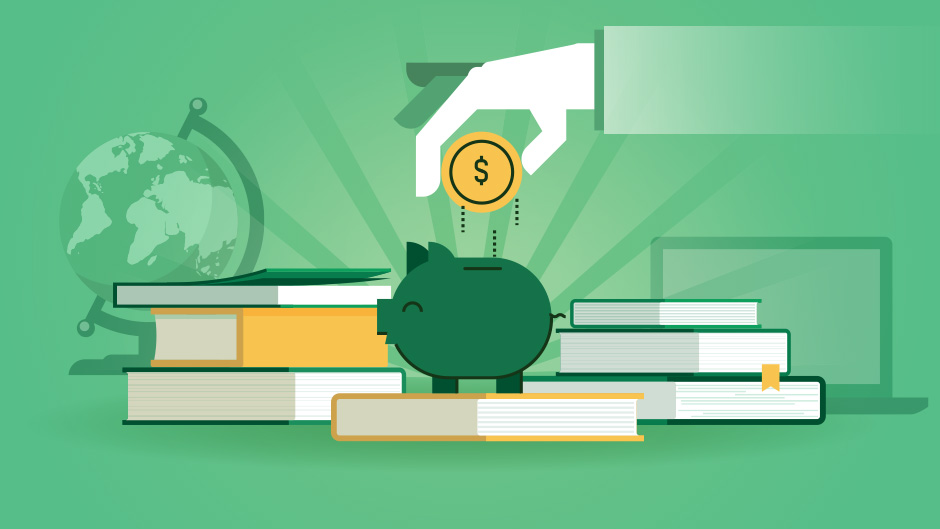What Should We Know About Financial Literacy?
Money is everywhere.
People make and spend money on a frequent and consistent basis. Whether you're refilling your car with gas, paying for your school tuition, saving money to move out, or planning for retirement, you must deal with money. Even though everyone has to deal with it, most people don't know how to use it properly.
One's financial situation plays a big role in determining their quality of life.
When someone increases their level of financial literacy, it directly improves the quality of their life.
Money is a tool that most people don't know how to use. Most people live paycheck-to-paycheck and depend on their single income stream to keep them afloat. They struggle to pay off debt because they can't save a penny and don't understand simple budgeting.
These people are willing, but they just don't know how to escape their current financial rut. They don't know where to start. The first step seems the hardest. Financial literacy would solve their problems and give them direction.
So where should people start with their financial literacy journey?
Start by understanding the fundamental principles in this blog post.
If you can understand these basic principles, it will help you understand how money works better.
:max_bytes(150000):strip_icc()/INVFinancialLiteracyHub_Final_2-1ca3cee983724276ab7530d3fae1d6c4.jpg)
According to the National Association of Independent Schools, only one-third of the world's population is financially literate and understand how money works (extracted from a 2014 S&P Global FinLit Survey). According to the National Financial Capability Study by FINRA in 2015, two-thirds of Americans couldn't pass a basic financial literacy test. This can have a negative impact on people's lives because it means they lack the basic skills and knowledge to make educated decisions with their financial resources.
It all starts in school. If schools implement an effective financial literacy course with great instructors, students would learn money skills early on and it would have a great impact. When students are given the opportunity to properly learn financial literacy, the outcome is positive and beneficial.
However, most teachers don't feel comfortable talking about the topic of financial literacy. According to the National Association of Independent Schools, their "Money Matters" article states, "And the report indicates that teachers don't feel comfortable teaching financial literacy because they don't have the knowledge or expertise," (page 43). It is difficult to teach something that they don't practice. Also, there are limited resources available to teachers in order to help them teach the curriculum better. Schools should introduce financial experts as teachers and guest speakers. Better yet, schools should hold workshops for teachers to become more financially literate themselves.
According to the National Association of Independent Schools, countries that have already introduced financial topics in their curriculums or have some form of financial education program tend to perform above average in financial literacy.

If people didn't get the opportunity to learn financial literacy in school, what should they know about it?
According to Nelson Soh, he mentioned that the population is currently in record level credit card debt at high interest rates and have very little money saved for an emergency (Ted, 2022).
People are too busy thinking about what they want in the present moment and feed into their instant gratification. This causes impulsive, unnecessary purchases. People buy things they can't afford like fancy new cars, designer clothes, and expensive jewelry to impress other people. Their purchases are guided by emotion rather than logic.
Most people let material items own them. If people were more disciplined with their money, they would have the financial freedom they desire. Imagine being able to afford expensive clothes or a fancy car without letting it affect your financial situation. It is possible.
Here is a seven step blueprint you can follow to reach your financial goals:
1. Set financial goals (regarding spending, saving, investing, how your career and future life look like)
2. Estimate your income (record everything you make)
3. Budget an emergency fund and savings (Start creating that emergency fund, even if it's just $50 at first)
4. Budget fixed expenses (rent, mortgage, car payment, etc.)
5. Budget variable expenses (food, gas, etc.)
6. Record spending amounts (how much are you spending and on what?)
7. Review spending and saving patterns (record your financial progress and make adjustments as needed)
With this blueprint, you'll start thinking about things like an emergency fund, budgeting and retirement. When you have those fundamentals down first, it'll be easier to make purchases you can actually afford, be disciplined, and have better relationship with money.
Financial literacy is non-negotiable.
The better we are at money, the easier life gets.

Excellent!
ReplyDelete